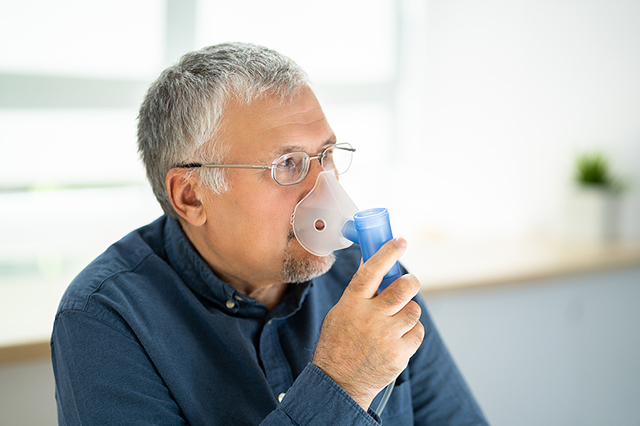
Chronic Obstructive Pulmonary Disease (COPD) is a prevalent and debilitating respiratory condition that affects millions of individuals in the UK. Characterized by persistent airflow limitation and respiratory symptoms, COPD encompasses conditions such as chronic bronchitis and emphysema. COPD is primarily caused by exposure to tobacco smoke, environmental pollutants, and genetic factors. In the UK, where smoking rates and air pollution levels remain significant concerns,
COPD represents a major public health challenge. Understanding the causes, symptoms, diagnosis, and management of COPD is essential for improving outcomes and enhancing the quality of life for individuals affected by this chronic condition.
SUMMARY
COPD primarily arises from prolonged exposure to irritants such as cigarette smoke, environmental pollutants, and occupational hazards. Genetic factors like alpha-1 antitrypsin deficiency can also increase susceptibility.
Additionally, respiratory infections during childhood and exposure to secondhand smoke are significant risk factors for developing COPD later in life. Early recognition and avoidance of these risk factors are crucial for preventing COPD.
COPD significantly impacts quality of life, leading to chronic symptoms such as cough, shortness of breath, and chest tightness. The condition worsens over time, limiting physical activity, impairing lung function, and increasing the risk of exacerbations and hospitalizations.
COPD is associated with comorbidities like cardiovascular disease and depression, further reducing life expectancy. Early intervention and management are essential for minimizing the impact of COPD on individuals and society.
Diagnosing COPD involves a comprehensive evaluation, including medical history, physical examination, lung function tests (spirometry), and imaging studies (chest X-rays or CT scans).
Spirometry is the primary diagnostic tool, measuring airflow obstruction and severity.
Early detection allows for prompt initiation of treatment and lifestyle modifications to slow disease progression and improve outcomes.
Treatment for COPD aims to alleviate symptoms, reduce exacerbations, and improve quality of life.
Medications commonly used include bronchodilators (inhaled beta-agonists and anticholinergics) to relax airway muscles and corticosteroids to reduce inflammation.
Pulmonary rehabilitation programs, oxygen therapy, and smoking cessation are integral components of COPD management to enhance functional capacity and respiratory health.
Managing COPD involves adopting lifestyle strategies to minimize symptoms and improve overall well-being.
This includes smoking cessation, avoiding exposure to air pollutants and respiratory irritants, and maintaining a healthy weight through regular exercise and balanced nutrition.
pulmonary rehabilitation programs offer education, exercise training, and psychological support to enhance self-management and quality of life.
Living with COPD can be challenging, but support from healthcare professionals, family, and community resources can make a significant difference.
COPD support groups provide a platform for individuals to share experiences, receive encouragement, and access valuable information and resources. Healthcare providers play a crucial role in offering personalized support, education, and guidance to help individuals cope with the challenges of managing COPD and maintain a fulfilling lifestyle.